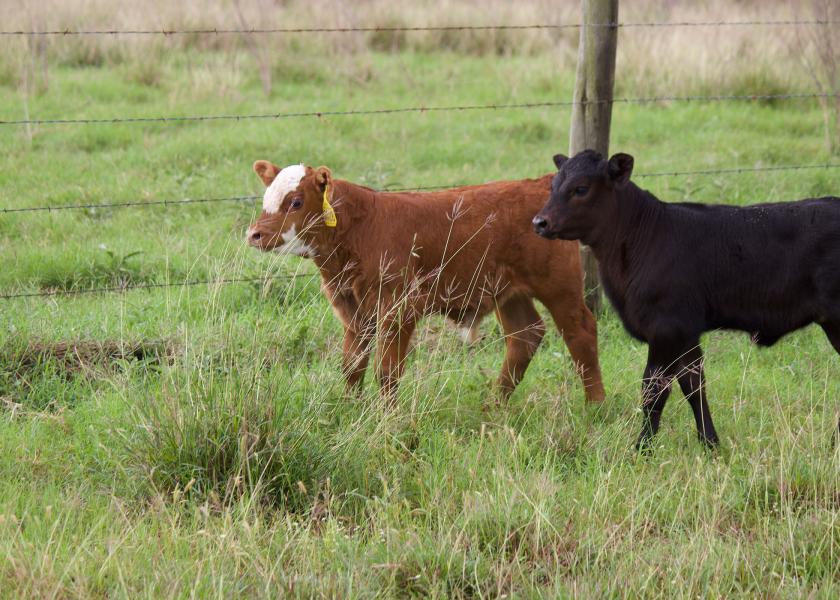Pre-weaned Calf Deworming Improves Weight-gain Adds Value

Calves in a study at the Southwest Research and Extension Center in Hope, Ark., showed more advancement when dewormed before being weaned.
Daniel Rivera, associate professor of animal science, said the weight gain translated to adding about $13 of value per head of cattle 21 days after weaning. With roughly 400,000 calves in Arkansas at 400 pounds or less, deworming before weaning could result in an additional $5.12 million to Arkansas beef cattle producers.
“Parasite burden can have a negative effect on performance,” Rivera said. “This can lead to reduced weight gain and other effects that are more difficult to measure, like immune response and vaccine efficacy. Some of these losses might be visible to producers, who will either sell their cattle at weaning or after a preconditioning program.”
A preconditioning program is a period, typically a minimum of 45 days, used to build the health status of a weaned calf before sale.
Rivera said most cattle ranchers usually do not handle their animals until they wean them. However, he had read studies that suggested pre-weaning management can have extended effects.
“I just wanted to see what the effect was, and we saw that small effect early on, but the fact that it carried through, even 56 days later, showed that some of these things that we do prior to weaning can have an impact later one,” Rivera said. “This, surprisingly, was one of them.”
The added labor for deworming pre-weaned calves, Rivera said, could be a full-day job for cow-calf producers in Arkansas and the cost of labor would need to be considered by the producer to determine if the process is right for them.
The calves dewormed before weaning averaged 4.5 pounds heavier than the control group that did not receive a dewormer before being weaned. That translated to $10.25 in value added per head at weaning time and $12.80 per head 21 days after weaning. The values are based on the Dec. 11, 2023, Arkansas Department of Agriculture market report for a 500-pound calf at $2.51 per pound. Calves have increased in value since then, with the late February-early March 2024 market report offering $3.04 per pound for 500-pound calves.
The study was conducted near Hope at the University of Arkansas System Division of Agriculture’s Southwest Research and Extension Center. Rivera is director of the facility and conducts research for the Division of Agriculture’s research arm, the Arkansas Agricultural Experiment Station.
For the study, Rivera's team randomly assigned calves to one of two groups. The calves in one group received a deworming treatment 60 days before the set date in October when they would be weaned. The other group was the control and did not receive deworming treatment before weaning. For the experiment, all calves were weighed and then either given a dewormer or not based on their assigned group. At weaning time, all the calves in the study were dewormed and vaccinated, including those already dewormed before being weaned.
Researchers took blood samples from the calves on their second round of vaccinations three weeks after weaning. The pre-weaned dewormed calves still had a 5.5-pound weight advantage over those that did not get a deworming treatment before being weaned.
A follow-up study will take place this summer at the center. Rivera’s team is analyzing the blood samples from the calves to see if pre-weaned, dewormed calves have different antibody levels than the control group. Antibodies are proteins the immune system produces to protect the body from illness.
“One of the things that happens when you have a parasitic infection is that the body starts to fight that infection and sometimes resources aren't available to mount other immune responses,” Rivera said. “One of our lines of thinking is that if we have this worm load on these calves, that may have a negative impact on their antibody production.”
Merck donated the dewormer used in the study. Use of a product name does not imply endorsement by the University of Arkansas System Division of Agriculture.







